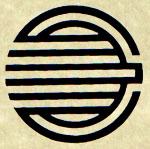| Pages in topic: [1 2 3] > |
Off topic: Do you know of a language that places surnames ahead of first names? Thread poster: Viktoria Gimbe
|
|---|
I hope I am posting this thread in the right forum. If not, then kindly move it, moderator. Thanks!
I am wondering which languages (or geographical regions) place the surname ahead of the first name. I so far know of two such languages: Hungarian and Japanese, although both have been adopting the 'normal' standard in official documents and formal communications.
I think that this is an interesting question, because there might be a correlation between the order of surna... See more I hope I am posting this thread in the right forum. If not, then kindly move it, moderator. Thanks!
I am wondering which languages (or geographical regions) place the surname ahead of the first name. I so far know of two such languages: Hungarian and Japanese, although both have been adopting the 'normal' standard in official documents and formal communications.
I think that this is an interesting question, because there might be a correlation between the order of surnames and first names and the logic behind a language.
Hungarian is a very special language with a logic unlike pretty much any other - sadly, no anthropoligist or historian has so far succeeded in establishing a common ancestor between Hungarian and another language, although they have went so far as determining that the ancestors of Hungarians and the ancestors of the Finns once spoke a common language (which doesn't mean their respective languages before that period had a common ancestor). Many very interesting theories exist, but none has been proven without a doubt.
Japanese is also one of those languages that stands out from the crowd and isn't close enough to any other language to establish a link. They have also invented their own writing system, unlike any other (and which is sadly dying out slowly).
I am hoping that listing all languages that use the 'other way around' naming scheme will shed some light not as much on the origins and common ancestors of languages as on the cultural similarities. Japanese is an Asian language, and many widespread theories suggest that Hungarian is a language whose ancestor was first spoken in Asia. If Hungarian has changed over time but has still retained its particular naming scheme, it must be because this naming scheme has more to do with tradition and culture than with language itself. If the ancestors of Hungarians originate from Asia, then it could be that they use the 'other way around' naming scheme for more or less the same reasons the Japanese are using it.
Anybody has any information on the subject? Can you perhaps name other countries, people or regions where this practice also exists, even if it is only partially applied?
Please, contribute whatever comes to mind. ▲ Collapse
| | | |
Helena Genel
United States
Local time: 19:09
English to Spanish
+ ...
| Vietnam and Korea | Nov 8, 2008 |
"Most Vietnamese names consist of three elements. The first is the family
or clan name, such as Nguyen. Next comes the middle name, e.g., Van.
Then comes the given name. A typical Vietnamese name would be:
Nguyen Van Hung, in which Nguyen, the family name, is transmitted from
generation to generation through the male child. Van is the middle or
“cushion” name. Hung, the given name is last."
"A Korean personal name consists of a family surname... See more "Most Vietnamese names consist of three elements. The first is the family
or clan name, such as Nguyen. Next comes the middle name, e.g., Van.
Then comes the given name. A typical Vietnamese name would be:
Nguyen Van Hung, in which Nguyen, the family name, is transmitted from
generation to generation through the male child. Van is the middle or
“cushion” name. Hung, the given name is last."
"A Korean personal name consists of a family surname and a given name. The given name follows the family name, e.g., Kim Tae Hoon"
Source: http://www.state.gov/documents/organization/87982.pdf
[Edited at 2008-11-08 04:28] ▲ Collapse
| | | |
Shirley Lao 
Taiwan
Local time: 10:09
Member (2007)
English to Chinese
+ ...
Chinese surnames also precede their given names. Chinese surnames usually consist of one Chinese character while their given names consist of one to two Chinese characters.
| | | |
Interesting topic. I didn't know other peple placed surnames before their given names.
Indians from the southern part of the country place the family name before the given name, which is written in as an alphabet before the name. As in my case, Y. Aruna. This creates a lot of confuion while filling up forms. Lot of people have taken to placing it after their names to conform with the format of America, Europe etc. This sometimes made people call me Frau Yallapragada when I was in Germany.... See more Interesting topic. I didn't know other peple placed surnames before their given names.
Indians from the southern part of the country place the family name before the given name, which is written in as an alphabet before the name. As in my case, Y. Aruna. This creates a lot of confuion while filling up forms. Lot of people have taken to placing it after their names to conform with the format of America, Europe etc. This sometimes made people call me Frau Yallapragada when I was in Germany. After a little explaination, I was called by my name, Aruna.In India, at least in the South, we are rarely addressed by our surnames. ▲ Collapse
| | |
|
|
|
Erik Freitag 
Germany
Local time: 04:09
Member (2006)
Dutch to German
+ ...
Dear Viktoria,
Bavarian (German: Bairisch), a dialect commonly spoken in parts of southern Germany, uses this naming scheme as well. I'm not sure whether other dialects of southern Germany share this peculiarity...
Edited for typos.
[Bearbeitet am 2008-11-08 07:04]
[Bearbeitet am 2008-11-08 08:09]
| | | |
Hungarian.
Bavarian astonishes me though. I don't speak German but I thought I'd have heard of a major European dialect using "our" name order.
I don't think there are any others in Europe
BTW, "although both have been adopting the 'normal' standard in official documents and formal communications" is entirely mistaken in the case of Hungarian. Where did you get that from?
In Hungarian text, Hungarian names are invariably in the "correct" order. When Hungari... See more Hungarian.
Bavarian astonishes me though. I don't speak German but I thought I'd have heard of a major European dialect using "our" name order.
I don't think there are any others in Europe
BTW, "although both have been adopting the 'normal' standard in official documents and formal communications" is entirely mistaken in the case of Hungarian. Where did you get that from?
In Hungarian text, Hungarian names are invariably in the "correct" order. When Hungarian names appear in foreign, say, English text, they are usually inverted to match the English tradition and make it easier for foreigners to tell which is which.
BTW I understand that the history of Hungarian is reasonably well established. It's just that there aren't any closely related languages left in existence so it's in a bit of a vacuum that way. I think Finnish is the closest relative but it's not like we understand a single word of each other's language... ▲ Collapse
| | | |
Tsogt Gombosuren 
Canada
Local time: 20:09
Member (2004)
English to Mongolian
+ ...
| Mongolic, Turkic and Tungusic languages | Nov 8, 2008 |
All of the languages belong to the Altaic language family, which forms the Ural-Altaic language family together with the Ural language family (to which Hungarian and Finnish languages belong).
Japanese and Korean languages are considered by many scholars to be members of the Ural-Altaic language family.
You may want to see the following article of Wikipedia relating to t... See more All of the languages belong to the Altaic language family, which forms the Ural-Altaic language family together with the Ural language family (to which Hungarian and Finnish languages belong).
Japanese and Korean languages are considered by many scholars to be members of the Ural-Altaic language family.
You may want to see the following article of Wikipedia relating to the language family:
http://en.wikipedia.org/wiki/Ural-Altaic
Tsogt is my first name, though I use it after my surname when I speak Mongolian. Actually Gombosuren is my father's name. Mongolians did not use surnames until recently and started adopting our "surnames" in 1990-ties. But these newly adopted surnames are not used in our passports, but in our citizen's id cards and driving licenses.
Tsogt
[Edited at 2008-11-08 14:48] ▲ Collapse
| | | |
Jack Doughty 
United Kingdom
Local time: 03:09
Russian to English
+ ...
In memoriam
The opposite to Hungarian and Japanese: in official documents the name is usually given in the form of surname, forename and patronymic, e.g Ivanov Mikhail Alekseyevich. In other cases it is more likely to be Mikhail Alekseyevich Ivanov. If addressing someone on a formal basis, the surname is not used at all, but only the forename and patronymic: e.g. you would address your boss Mikhail Alekseyevich Ivanov simply as Mikhail Alekseyevich. In informal conversations between friends, a familiar f... See more The opposite to Hungarian and Japanese: in official documents the name is usually given in the form of surname, forename and patronymic, e.g Ivanov Mikhail Alekseyevich. In other cases it is more likely to be Mikhail Alekseyevich Ivanov. If addressing someone on a formal basis, the surname is not used at all, but only the forename and patronymic: e.g. you would address your boss Mikhail Alekseyevich Ivanov simply as Mikhail Alekseyevich. In informal conversations between friends, a familiar form of the first name is used, e.g. Misha for Mikhail.
[Edited at 2008-11-08 17:33] ▲ Collapse
| | |
|
|
|
Galina F
United States
Local time: 22:09
English to Russian
+ ...
Here in Russia when I file official documents I type Last name Name Patronymic (Pakhomova Galina Lvovna), though when I sign letters of more personal character I will write the other way - Galina Pakhomova.
| | | |
Galina F
United States
Local time: 22:09
English to Russian
+ ...
Jack, you were first and your comment is more detailed:) *curtsey*
| | | |
sarandor 
United States
Local time: 22:09
English to Russian
+ ...
| Khmer (Cambodian) | Nov 8, 2008 |
I traveled to Cambodia (Angkor Wat) a few years back. The last name comes first in Khmer.
| | | |
Heinrich Pesch 
Finland
Local time: 05:09
Member (2003)
Finnish to German
+ ...
| Iceland and Finland | Nov 8, 2008 |
Icelanders have no surname, so a person whose name may be:
Thor Björgólfsson, Vigdis Finnbogadóttir
is addressed as Thor or Vigdis respectively. The second name is the patronymic, but it is in no case a surname, so you may not say or write Mr. Björgólfsson or Ms. Finnbogadóttir!
In Finnish people refer to each other usually surname first. So if you are talking about a man who's name is Akseli Turunen, you would talk about him to an other person in the form o... See more Icelanders have no surname, so a person whose name may be:
Thor Björgólfsson, Vigdis Finnbogadóttir
is addressed as Thor or Vigdis respectively. The second name is the patronymic, but it is in no case a surname, so you may not say or write Mr. Björgólfsson or Ms. Finnbogadóttir!
In Finnish people refer to each other usually surname first. So if you are talking about a man who's name is Akseli Turunen, you would talk about him to an other person in the form of "Turusen Akseli". Or in the case of a woman "Niemisen Maija told me yesterday..."
The surname is then in the genitive form: Turunen - Turusen, Nieminen - Niemisen.
This of course only if you the person is a near acquaintance of you both and the first name alone will not do, because who know a lot of Aleksis and Maijas.
Its the same system like the one mentioned earlier in Bavarian (and other dialects of German). ▲ Collapse
| | |
|
|
|
Chamz
Germany
Local time: 04:09
Romanian to German
+ ...
It is a custom to write the surname, then the initial of your father's first name and at last comes your first name.
Per example: Bergmann Gh. Magdalena (Gh. stands for Gheorghe, my father's first name. In this case the shortcut G. can not be used because this is already the initial for George.)
[Edited at 2008-11-09 21:24]
| | | |
Jack Doughty wrote:
in the form of surname, patronymic and forename,
e.g Ivanov Mikhail Alekseyevich.
surname, forename, and patronymic

| | | |
| Beware, some languages have no rules. | Nov 8, 2008 |
I've seen the surname placed before the name quite often in Italian and French. As some first names sometimes are often surnames, and sometimes vice-versa (e.g. in EN, Thomas, Gilbert, Tracy, Parker, Everett, etc.), I'd be very careful with that, not taking for granted that there are any such rules or, if there are, that they have been used in the case at hand.
Viktoria Gimbe wrote:
Hungarian is a very special language with a logic unlike pretty much any other - sadly, no anthropoligist or historian has so far succeeded in establishing a common ancestor between Hungarian and another language, although they have went so far as determining that the ancestors of Hungarians and the ancestors of the Finns once spoke a common language (which doesn't mean their respective languages before that period had a common ancestor). Many very interesting theories exist, but none has been proven without a doubt.
One Hungarian told me that if someone transliterated Phoenician hyeroglyphs, any Hungarian would be able to read and understand the resulting text. As this man spoke Portuguese (and another half a dozen languages he pretended to speak) sooo badly, I might have misunderstood him.
| | | |
| Pages in topic: [1 2 3] > |

























